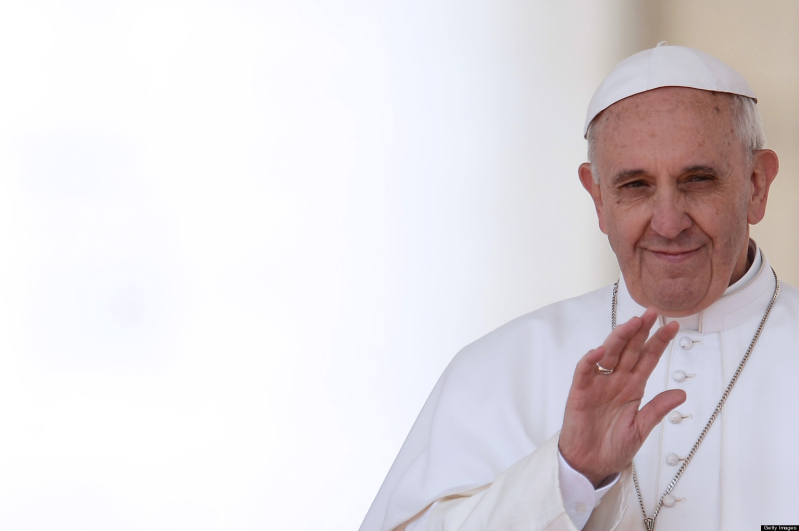
Pope Francis told a Roman Catholic meeting on family issues on Monday that the Church should not be a stuffy "museum of memories" but have the courage to change if that was what God wanted.
Francis urged bishops at the start of a three-week gathering, known as a synod, to humbly empty themselves of conventions and prejudices. They should not "point fingers at the others to judge them" or feel superior to those with different ideas.
In a passage that appeared to be directed at unbending traditionalists, the pope said bishops should beware the "hardening of some hearts, which despite good intentions, keep people away from God".
Yet he also made a nod to conservatives, calling for courage that "does not let itself be intimidated by the seductions of the world" and passing fads.
Since his election in 2013 as leader of the world's 1.2 billion Catholics, Francis has given great hope to progressives who want him to forge ahead with his vision of a more inclusive and less polarized Church that concentrates on mercy rather than the strict enforcement of rigid rules they see as antiquated.
Faith was "not a museum to look at and save" but should be a source of inspiration, he said, calling on the synod to have "courage to bring life and not make our Christian life a museum of memories".
The gathering of some 300 bishops, delegates, observers and 18 married couples has been preceded by intense jockeying between conservatives and liberals on sensitive issues.
It will discuss ways to defend the traditional family and make life-long marriage more appealing to young people while reaching out to disaffected Catholics such as homosexuals, co-habiting couples and the divorced.
Francis told the first working session the bishops should not just talk but try to hear what God wanted for the Church, and to listen to differing opinions among themselves.
But key participants said they did not expect any radical modifications to Church teachings on family issues.
NO RADICAL CHANGES
At a news conference after the first session, Cardinal Andre Vingt-Trois of Paris warned reporters they would be "disappointed" if they expected radical changes to basic Churchdoctrine on family issues such as marriage.
While he noted that the pope was the ultimate arbiter, Vingt-Trois predicted the changes would be to the pastoral approach to sensitive issues rather than to doctrine.
Italian Archbishop Bruno Forte, one of the synod's secretaries, said times had changed. "TheChurch cannot remain insensitive to the challenges ... the synod doesn't meet for nothing," Forte said.
The meeting is the follow-up to one held a year ago which was marked by stormy differences between conservatives and liberals on how welcoming the Church should be to homosexual Catholics.
The run-up to the synod has been dominated by gay issues.
Conservative Catholics held a conference in Rome just before it started on how homosexuals can live by Church rules that they be chaste. Activists held their own gathering, demanding full acceptance of active gays in the Church.
On Saturday, the Vatican dismissed a Polish priest from his Holy See job after he came out as gay and called for changes in Catholic teachings against homosexual activity.
The Vatican said his very public coming-out put undue media pressure on the synod. Francis appeared to refer to outside pressure, saying the synod should be "a protected space where the Church feels the action of the Holy Spirit".
Another key topic will be how to involve Catholics who have divorced and remarried in civil ceremonies.
They are considered to be still married to their first spouse and living in sin. Some bishops want a change to the rules that bar them from receiving sacraments such as communion.
Francis is believed to be in favor of the Church showing more mercy toward such Catholics on a case-by-case basis but he wants the bishops to reach common ground on the divisive issue.
The bishops, meeting behind closed doors, will submit reports to the pope. He may use these to write his own document, known as an Apostolic Exhortation, on family issues.







